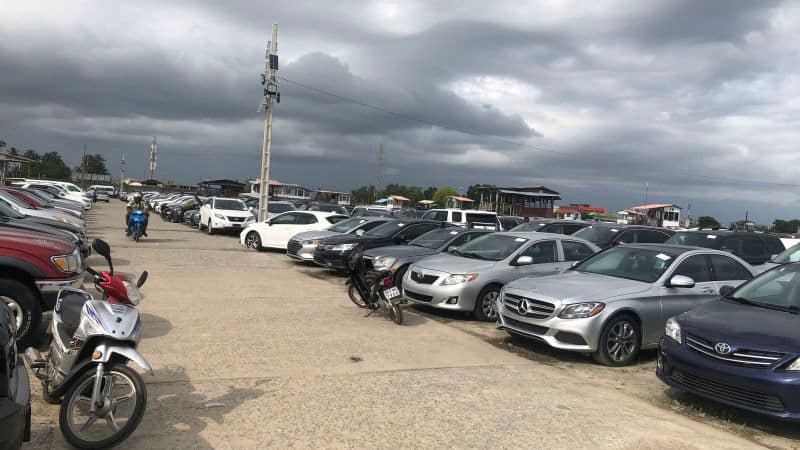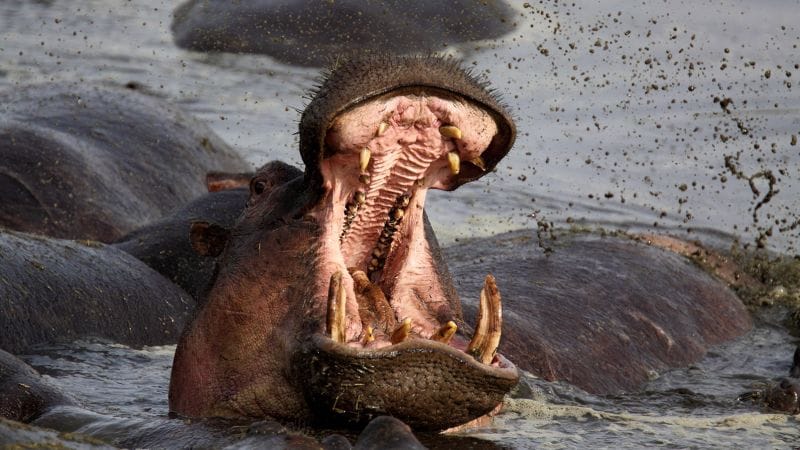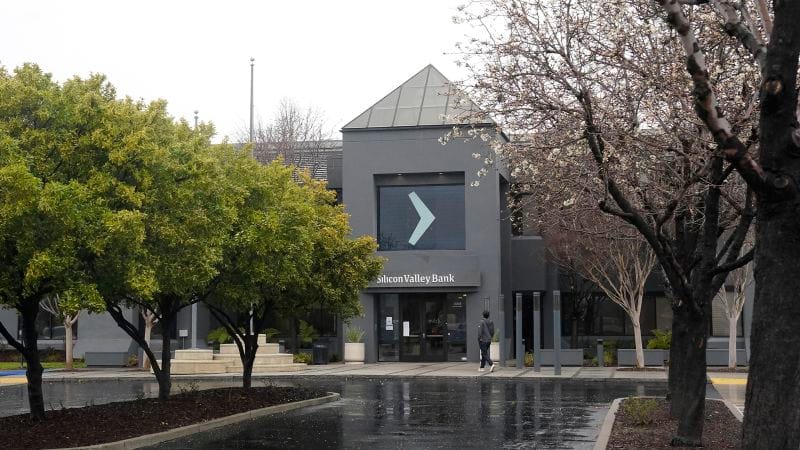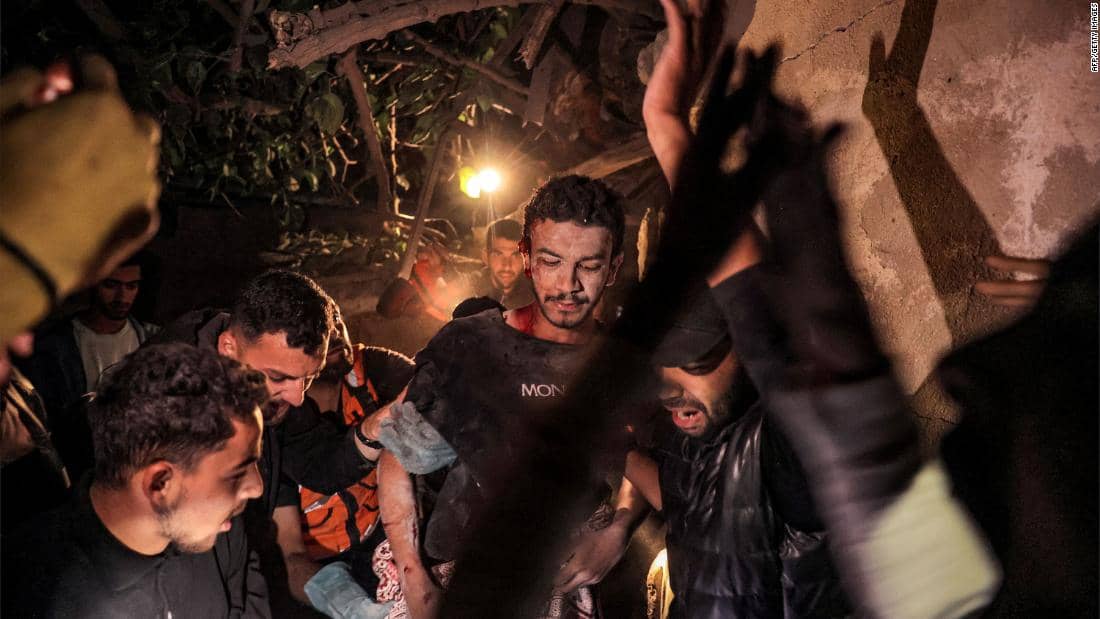The Israeli government has dropped some of the most controversial rules in a draft ordinance controlling how foreigners can enter and stay in the occupied West Bank. A draft of the rules
Cotonou, Benin
CNN
—
Standing on the stony ground in the bustling Fifa Park car lot, Rokeeb Yaya is haggling over the price of a dark red car. It is one of a couple hundred vehicles, parked in long lines stretching out across the vast lot – some shiny and new-looking, others dented and dusty.
The car Yaya has his eye on, a 2008 US-built Ford Escape, is on sale for around $4,000. It’s relatively affordable – US cars are cheaper than most other brands in the lot – and he wants to upgrade from his motorbike to a car. He is not interested in the history of the vehicle, he said, only that he can afford it.
But how this Ford ended up here – in one of the biggest car lots in the port city of Cotonou – helps tell a bigger story about how many of the West’s gas-guzzling cars are starting second lives in West Africa.
The 14-year old Ford arrived in Benin from the United States last year, after being sold at an auto auction.
Car records reviewed by CNN show it had three previous owners in Virginia and Maryland, and has logged over 252,000 miles on the road. It had one previous recall for its power steering, but unlike some of the other cars on the lot, it arrived in a relatively sound condition – it hadn’t been in any reported accidents.
This aging SUV is just one of millions of used cars that arrive every year in West Africa from wealthy countries such as Japan, South Korea, European countries and, increasingly, the US. Many of these end up in Benin, one of Africa’s top importers of used vehicles.

The stream of used cars heading to West African ports is only expected to increase with the West’s shift to electric vehicles. As wealthy countries set aggressive goals to move consumers towards electric vehicles to cut planet-warming pollution, gas-powered cars won’t necessarily go away.
Instead, many will be shipped thousands of miles away to developing countries like Benin, where populations are growing, along with demand for used cars.
Experts say the effect will be to divert climate and environmental problems to countries that are the most vulnerable to the climate crisis, undermining their own attempts to cut planet-warming pollution.
Exploding demand
The global market for used light-duty vehicles grew nearly 20% from 2015 to 2019, when more than 4.8 million were exported. There was a slight dip in exports in 2020 when the Covid pandemic started, but numbers are now “growing quite rapidly,” United Nations Environment Programme official Rob de Jong told CNN.
The US exports about 18% of the world’s used vehicles, according to UNEP data. These travel all over the globe, including to the Middle East and Central America, but many go to Nigeria, Benin and Ghana.
Some of these are salvaged cars that have been in accidents, were flooded, or are just too old – which get auctioned off for parts. Others are whole used cars that US car dealers are looking to offload.

“A lot of them are going to be two- to five-year-old Hyundais, Toyotas, sedans,” said Dmitriy Shibarshin, marketing director for West Coast Shipping, a company that specializes in shipping cars internationally. “It’s mostly the economy cars that get shipped there.”
Shibarshin’s company and others are “like FedEx” for cars, he said. His company usually specializes in higher-end vehicles, but also ships cheaper cars.
In major African countries like Kenya and Nigeria, more than 90% of the cars and trucks are used vehicles from overseas. In Kenya, where de Jong is based, the vehicle fleet has doubled every eight years; streets that used to be devoid of cars are now jammed with traffic, he said.
There is a tremendous appetite for these used vehicles. “You have a very young population that’s getting richer and richer by the day,” said Etop Ipke, the CEO of Autochek Africa, an online marketplace for cars. “The first thing they want to do, as they can afford things, is some mobility,” he said.
But, unlike in the US, few prospective buyers have access to credit, so new cars are often out of reach.
“That is fundamentally the reason why we’re not able to improve the quality” of cars sold, Ipke said. “It’s not like people want to drive used cars; it’s an affordability issue.”
Experts say demand for used cars could explode further as the take up of electric cars in the West increases the supply of used cars to African countries. Nearly one in five vehicles sold globally this year will be electric, according to the International Energy Agency, compared to less than 5% in 2020. China, Europe and the US are leading the EV market, the agency said.
In states like New York and Florida, where consumers are buying more EVs, dealers are increasingly looking overseas as a place to sell their older gas-powered models, according to Matt Trapp, a regional vice president at the huge auto auction company Manheim.
Those states also have robust port operations, making them an ideal place to ship used cars to Africa. “It’s setting up a really complementary dynamic,” Trapp told CNN.
“I’m not surprised to see how robust the export game is becoming,” Trapp said. “We’re going to see this dynamic more and more. When [auto dealers] see demand in other markets, they will find a way to move the metal there.”
From UNEP’s perspective, not all gas-powered cars are concerning – it’s the older ones, which tend to pollute more and be less safe, De Jong said. There’s evidence that the increasing demand in Africa for vehicles is actually resulting in more old and salvaged cars being shipped to the continent recently than there were 20 years ago.
“What we see at the moment is a wide variety of used vehicles being exported from the global north to the global south,” de Jong said. “Not only is the number increasing, but the quality is decreasing.”
In one section of Fifa Park, CNN finds a 16-year-old Dodge Charger, worn by age.
“We just sold it for 3 million XOF [around $4,500],” its seller, who did not wish to be named, said of the vehicle that arrived in Benin from the US two years ago.
Parked across from the Charger is a 24-year-old Ford Winstar that was shipped to Benin from the US last year. It’s a cheaper alternative for low-income car buyers who cannot afford newer models.
Car dealer Abdul Koura said that US and Canadian cars are very desirable to importers, who often bring in cars that have been in accidents, he told CNN.
“They repair these cars and resell them to make a profit,” said Koura, whose space at Cotonou’s Fifa park includes more than 30 used vehicles imported from Canada.

Victor Ojoh, a Nigerian car dealer who frequents Fifa Park, told CNN that it’s often possible to tell the origin of a car by what’s wrong with it.
“The cars that smoke are mostly from the US,” said Ojoh. “The cars from Canada are mostly flooded cars that start developing electrical faults.”
Some imported vehicles are missing their catalytic converters, an exhaust emission control devices which filter toxic gasses. Catalytic converters contain valuable metals including platinum and can fetch up to $100 on the black market. Some of the cars are shipped without catalytic converters or have them removed by dealers upon arrival, Ojo said.
Millions of cars shipped to Africa and Asia from the US, Europe and Japan are “polluting or unsafe,” according to UNEP. “Often with faulty or missing components, they belch out toxic fumes, increasing air pollution and hindering efforts to fight climate change.”
Regulations aimed at reducing pollution and increasing the safety of imported cars into West Africa have tended to be weak. But attempts have been made recently to tighten them up.
In 2020, Benin and 14 other members of the Economic Community of West African States bloc agreed a set of vehicle emissions regulations in the region, including an age limit of 10 years for used vehicles and limits on the amount of carbon pollution cars are allowed to produce.
But it’s unclear how strictly they are being enforced.

UNEP officials, including de Jong, have also had conversations with US and EU officials about putting in new regulations that would crack down on shipping very old or junk cars to developing nations. Those conversations are in early stages and have yet to result in any commitments.
Still, de Jong said climate change and global emissions have made the conversation around used cars “a different ballgame.” Increased shipments of older and more polluting cars are just as much of a problem for developed nations as they are for the developing countries where they are being driven, he added.
“Today with climate change, it doesn’t really matter where the emissions are taking place,” de Jong said. “Whether in Washington, DC, or Lagos, it makes no difference.”
Ipke doesn’t think that it is inevitable that Africa will accept all the old gas-powered cars the West no longer wants. He hopes that the transition to electric vehicles will come to the African continent as well, although that will require significant improvements to the charging infrastructure.
“In terms of where Africa goes, the transition shouldn’t necessarily be from used cars to brand new combustion engines, it should be from used cars to EVs,” Ipke said. “I think the continent has to be prepared for EVs, used or brand new, because that’s the direction the world is taking.”
For Yaya, however, this all seems a long way off. What brought him to Fifa Park, and to the old Ford SUV, was a lack of other options.
“I can only purchase what my money can afford,” he said.
Don't Miss
CNN — Paul Templer was living his best life. He was 28 and conducting tours in his native Zimbabwe, with
It’s a good day for OPEC. Data published Monday by the oil cartel show its members have largely complied with
Tesla is bringing its electric cars to the heart of the oil producing world. The automaker announced Monday that its
The Israeli government has dropped some of the most controversial rules in a draft ordinance controlling how foreigners can enter and stay in the occupied West Bank.
A draft of the rules was published in February and received harsh public backlash as well as legal challenges which forced a delay to their implementation.
One of the most controversial rules would have required foreign passport holders entering a formal relationship with a Palestinian living in the West Bank to notify Israeli authorities within 30 days of their engagement, wedding, or moving-in together. Another regulation in the draft placed quotas on the number foreign academics – lecturers and students – permitted each year.
But those regulations have been removed from the official guidance published on Sunday. The rules are currently set to take effect on October 20.
Israel says the new ordinance is meant to codify norms already in place.
The document also states that the new regulations will be part of a “two-year pilot period” after which “the situation will be evaluated and a decision will be made regarding whether to keep the procedure in force.”
An Israeli official, speaking on condition of anonymity to speak more freely, told us the reason Israel wanted foreigners to declare romantic relations with West Bank Palestinians was to simplify visitors’ visa process. The official said as an example, a student with a foreign passport who fell in love with a Palestinian could – instead of needing to renew their student visa every year – just register as a couple and receive the equivalent of a spousal visa.
But Palestinians and human rights groups said the rules were a further tamping down on the basic rights of Palestinians in the West Bank – while such rules would not have applied to Israeli settlements in the West Bank that are governed by Israeli civilian law.
Much of the international community, including the United States, considers the West Bank to be occupied territory since Israel took control of the area following the 1967 Arab-Israeli war. Israel controls all movement in and out of the territory.
The draft guidelines published in February were challenged in the Israeli Supreme Court by human rights groups and individuals.
In a statement, US Ambassador to Israel Tom Nides said the Embassy had been “aggressively engaged” with the Israeli government since the draft rules were published in February.
“I continue to have concerns with the published protocols, particularly regarding COGAT’s role in determining whether individuals invited by Palestinian academic institutions are qualified to enter the West Bank, and the potential negative impact on family unity,” Nides said. “It is important to ensure all of these regulations are developed in coordination with key stakeholders, including the Palestinian Authority.
COGAT is the Israeli agency which administers Israeli policy in the West Bank.
In a statement HaMoked, an Israeli-Palestinian legal aid organization that challenged the ruling in Israel’s Supreme Court, said the Israeli government “has removed some of the most outrageous elements” of the draft rules but that the basic problem remains: it is extremely difficult for foreign spouses of Palestinians to gain legal West Bank residency.
“[The] Israeli military takes the prerogative of micromanaging Palestinian society – including interfering with academic freedom of Palestinian universities. This procedure violates Israel’s international legal obligations and HaMoked will continue its legal challenge of it,” said HaMoked Executive Director Jessica Montell.
Israeli military admits Shireen Abu Akleh likely killed by Israeli fire, but won’t charge soldiers
The Israel Defense Forces admitted that there is a “high possibility” Palestinian-American Al Jazeera journalist Shireen Abu Akleh was shot and killed by Israeli fire while covering an Israeli military operation in Jenin in May, the IDF announced Monday.
- Background: Abu Akleh was fatally shot while covering an Israeli military operation in the West Bank in May. According to an autopsy carried out by the Palestinian Authority, she was killed by a single bullet to the back of the head. Footage obtained by CNN – corroborated by testimony from eight eyewitnesses, an audio forensic analyst and an explosive weapons expert – suggested that Abu Akleh was shot dead in a targeted attack by Israeli forces.
- Why it matters: This is the first time the IDF has admitted that Abu Akleh’s death was probably caused by Israeli fire. A senior IDF official who briefed journalists on the findings of the military’s investigation before they were released said troops didn’t know they were shooting at the press, and said that Abu Akleh’s back “probably” being turned to the soldiers was a contributing factor. In images from the scene of the shooting, Abu Akleh is wearing a protective vest that is labeled “PRESS” on both the front and back.
Iran sentences two women to death for ‘corruption on earth’
Two women have been sentenced to death in Iran on charges of “corruption on earth” and human trafficking over the last few days, Reuters cited Iran’s official IRNA news agency as saying on Monday.
- Background: “Corruption on earth” is a term Iranian authorities use to refer to a broad range of offenses, including those related to Islamic morals. “Contrary to news published online, the sentenced have deceived and trafficked young women and girls out of the country by promising them educational and work opportunities, thus leading to the suicide of several of their victims,” IRNA said.
- Why it matters: Advocates and rights group took to social media to share pictures of the two women, saying they are LGBT rights activists and are innocent. Reuters couldn’t verify the pictures. In March, Iran’s Supreme Leader Ayatollah Ali Khamenei described homosexuality as part of a “moral deprivation” widespread in Western civilization. Under Iran’s legal system, homosexual acts can be punished by the death penalty.
Erdogan accuses Greece of ‘occupying’ demilitarized islands
Turkish President Recep Tayyip Erdogan accused Greece on Saturday of occupying islands in the Aegean Sea that have a demilitarized status, and said Turkey was prepared to “do what is necessary” when the time comes, Reuters reported.
- Background: Ankara has recently accused Athens of arming the demilitarized Aegean islands, which Athens rejects, but Erdogan had not previously accused Greece of occupying them. “Your occupying the islands does not bind us. When the time, the hour, comes, we will do what is necessary,” Erdogan said. Greece reacted by saying it will not follow Turkey in its “outrageous daily slide” of statements and threats.
- Why it matters: NATO members Turkey and Greece have been at odds over issues ranging from overflights and the status of Aegean islands to maritime boundaries and hydrocarbon resources in the Mediterranean, as well as ethnically split Cyprus. Turkey has also recently been angered by what it said is harassment of its jets by Greek forces.
Abandoned for years on Istanbul’s Asian shore, the city’s famed “haunted mansion” was finally sold on Friday to Turkish lender İşbank for 449.3 million Turkish Liras ($24.7 million).
The 116-year-old historic structure stands tall and majestic in the city’s affluent neighborhood of Kadikoy. It was built in 1906 by the Prussian architect August Carl Friedrich Jasmund, according to Turkish state media, and was named ‘Ragip Pasha’ after the aide-de-camp to Ottoman Sultan Abdülhamid II.
Ragip Pasha lived in the mansion until his death in 1920, and the property has since exchanged hands several times.
The three-story building has a closed area of 2,700 square meters and sprawls over a large garden space. In desperate need of renovation, its 20th-century architecture and spectacular seaside view have made it an integral historical landmark for the Kadikoy neighborhood.
The abandoned building’s rough facade and dilapidated facilities have led locals to refer to it as ‘haunted’.
The property was sold at a public tender, where the court had initially placed the building’s price at 449.4 million liras.
İşbank bought the mansion at just 8 liras over the court’s price, according to Turkish media.

Don't Miss
CNN — When customers at Silicon Valley Bank rushed to withdraw billions of dollars last month, venture capitalist Arlan Hamilton
Cotonou, Benin CNN — Standing on the stony ground in the bustling Fifa Park car lot, Rokeeb Yaya is haggling
Israel’s military has ordered the evacuation of more neighborhoods in Rafah ahead of a potential major ground operation in the








